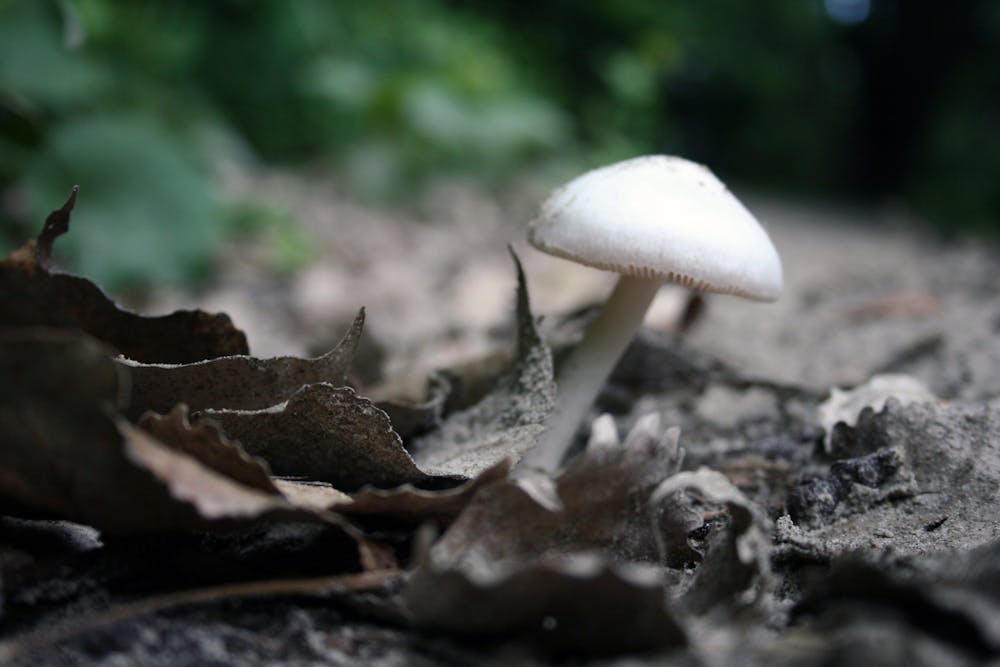According to a press release by EurekAlert, the Hopkins Center for Psychedelic and Consciousness Research (CPCR) is partnering with Unlimited Sciences, a psychedelic research nonprofit, to conduct a new research study on the use of psilocybin mushrooms, commonly known as “magic mushrooms,” outside of the laboratory environment. The study, which was announced on August 12, hopes to survey people around the world to create a registry of information about psilocybin usage and resulting experiences.
Psilocybin is a naturally occurring compound that is both psychoactive and hallucinogenic. Because it is found naturally in several species of mushrooms, it has been widely documented in a variety of cultures. According to the Drug Policy Alliance, psilocybin is not known to be addictive, but as a hallucinogen, it can cause mental and physical side effects. Despite this, it has also been evaluated for its potential use in various therapies.
According to the CPCR recruitment site, the study aims to attract people who intend to use psilocybin mushrooms in the next six months. They will complete five surveys at varying periods before and after their usage. The study hopes to survey over 1000 people worldwide. A variety of information will be collected about the individual’s lifestyle, intention, demographic and even personality traits. This information can then be compared with more quantitative data, like the dosage of the mushrooms, to better understand the effects of long term use.
The News-Letter reached out to the lead researchers of the clinical trial, but the institutional review board at the School of Medicine prohibits publicity surrounding ongoing, industry-sponsored clinical trials.
In an interview with The News-Letter, sophomore Physics major Sean Cameron praised the study for its potential to reveal future treatments for debilitating diseases.
“It’s fantastic that Johns Hopkins is researching the potential benefits of psilocybin outside of a clinical setting. This research could lead to a better understanding of how psychedelics may be used to treat a variety of problems as well as helping people understand what affects their habits may have,” he said.
This isn’t the first time that Hopkins has studied the effects of magic mushrooms. The CPCR became the first research group to gain approval to study the effects of psychedelics in 2000 and published a study that established the positive outcomes and safety of a single dose of psilocybin.
The study found that two months after administering psilocybin, the subjects experienced sustained positive attitude changes and considered the experience to have “substantial personal meaning and spiritual significance.”
Deemed a landmark study, this publication inspired a new wave of psychedelic research around the world. Since then, the research done by the CPCR has made Hopkins the leading psychedelic research institution in the U.S. and among the top in the world.
Research on psychedelics started in the 1950s and 1960s, but the War on Drugs initiative undertaken by U.S. President Richard Nixon in the 1970s and negative reporting halted this research.
Since the recent revival of psychedelic research, new studies have shown that these drugs, once seen as entirely detrimental to human health, may have positive effects for people who suffer from conditions including addiction and depression. By surveying people of various backgrounds, the new Hopkins study hopes to better understand health outcomes in relation to psilocybin usage.
In an interview with The News-Letter, Connie Chang-Chien, a sophomore studying Molecular & Cellular Biology and Computational Medicine, noted that despite the stigma against psilocybin, similar studies have shown to be valuable to the medical field.
“Looking at how previous research on cannabis and the advancement of similar drugs have been approved by some levels of government, I think that it is fairly reasonable to go forward with research on psilocybin,” she said. “There’s a stigma around the usage of psychedelic mushrooms, but by learning more about usage and potential effects, there are definitely positive outcomes that can come out of the research.”
If you are interested in participating in the new study, visit https://www.unlimitedsciences.org/our-study/ for more information.























Please note All comments are eligible for publication in The News-Letter.